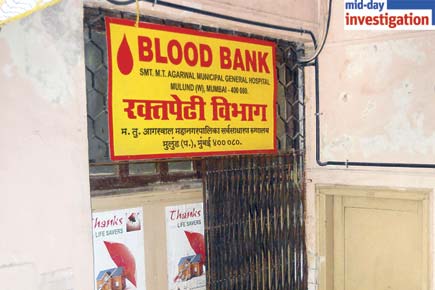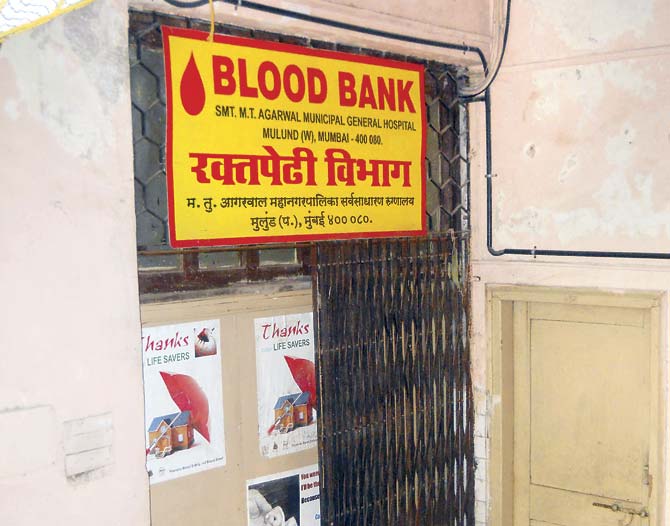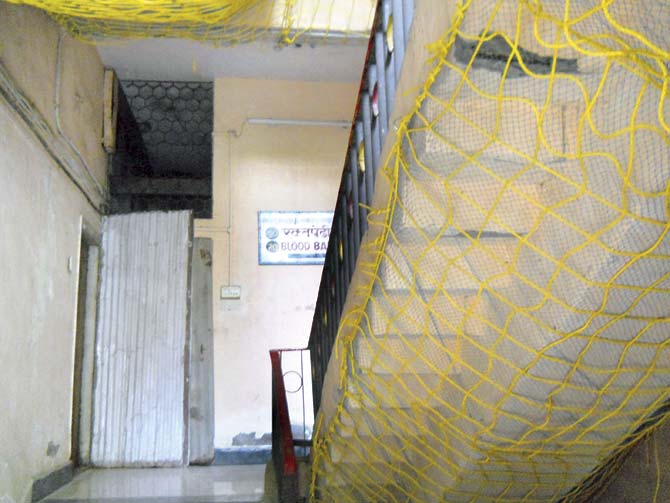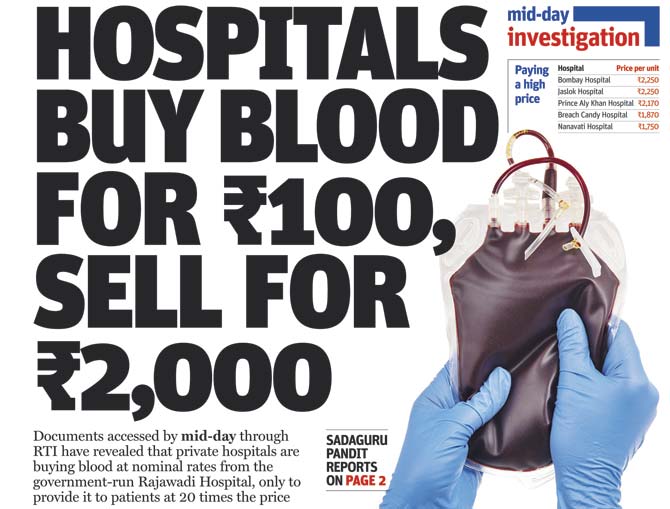Continuing its investigation into the city's blood banks, mid-day reveals how a public hospital is grossly mismanaging its blood resources, letting considerable amounts go to waste, either due to expiration or missing records

In a medical emergency, finding the right type and amount of blood can prove to be the difference between life and death. Continuing an RTI investigation through which mid-day had highlighted last week how this precious resource was being sold at inflated rates by private hospitals this newspaper has found that at a BMC-run hospital in Mulund (West), lifesaving blood is simply going down the drain due to inefficient management.
ADVERTISEMENT

Not only is the building being held together with nets, the blood bank lacks manpower and resources and is currently not much more than a storage centre for blood
Not only has this led to the expiration of at least 282 units of blood lying unused over the past three years, the blood bank is also wasting the rarest of rare Bombay or hh-type blood. While the M T Agarwal Municipal General Hospital in Mulund (West) is considered a prime medical facility, its blood bank is in an appalling condition.

Not only is the dilapidated building being held together with nets, the blood bank is currently serving merely as a storage unit, as it does not have adequate manpower or technical resources.
While blood banks conduct blood donation camps every few months to add to their stock, the M T Agarwal blood bank has not conducted a single camp in the past 16 months.
Bloody mess
Even from the blood that they receive from other sources, a considerable amount is wasted due to expiration. According to the documents retrieved by mid-day under the RTI Act, last year, the bank had collected just 86 units of blood, of which 50 per cent (43 units) eventually expired.
In 2013 as well, 85 units of blood went past their shelf life, but the worst figures come from 2012, when 154 units of blood expired. What’s worse, even the blood bank’s ledgers don’t add up and over the past three years, around 335 units of blood have simply ‘vanished’ as they are not accounted for in the records.
Just last year for instance, while the closing balance of blood units for 2013 was 358, the opening balance for 2014 was 70, which means as many as 288 units were not accounted for. Counting the expired blood and the missing units, the blood bank has lost about 216-277 litres of blood in all (one unit of blood holds about 350-450ml) between 2012 and 2014.

According to Dr Sandip Salokhe, the medical director at Sir J J Mahanagar Raktapedhi, “Though there is no rule limiting the number of blood units that can be allowed to expire, we try to ensure that even a single unit is not wasted as it is an important lifesaving resource. Blood is either provided to other hospitals or used within 35-42 days.”
Oh, Bombay
The most shocking lapse, however, is the fact that the hospital is wasting opportunities to save the rare Bombay type blood, also known as the hh or Oh type. The group is so rare that it is found only in about 0.0004% of the population, or in about 4 people per million individuals.
Blood banks use a special Anti-h antiserum to determine whether a blood sample is of this type, but at the M T Agarwal hospital, the serum hasn’t been in stock for at least three months.
 Subscribe today by clicking the link and stay updated with the latest news!" Click here!
Subscribe today by clicking the link and stay updated with the latest news!" Click here!






